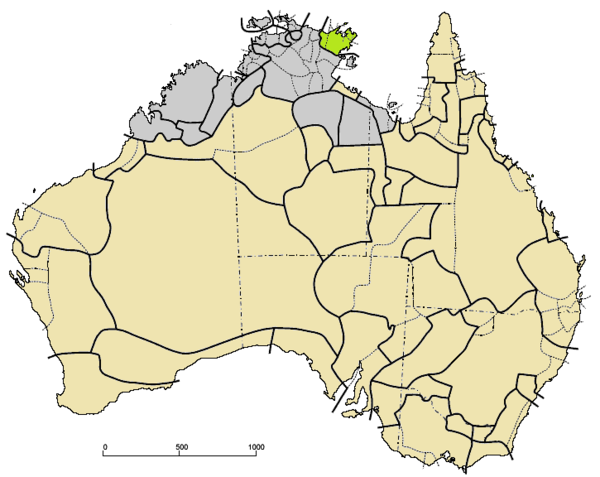Take a look at the video below and within seconds you’ll realise where we’re headed in this week’s Language Watch. So far in our series, we’ve travelled to Asia, Africa, North and South America, and Europe, shining a spotlight each time on minority and endangered languages throughout the world. Now for the first time, we’re in Oceania, in Australia’s Northern Territory to be precise, and the world of the Yolŋu Aboriginal people.
Many scholars think that the Aboriginal peoples of Australia form a race that is wholly unique and developed over many tens of thousands of years, and it is uncertain if there is any link to languages outside their native land. One thing is for certain: there are no written records of any kind surviving from before the advent of European settlement, in the 17th century.
Estimates of the number of languages spoken on the Australian continent at that time range anywhere from 150 to 650, spoken by around 300,000 native people.
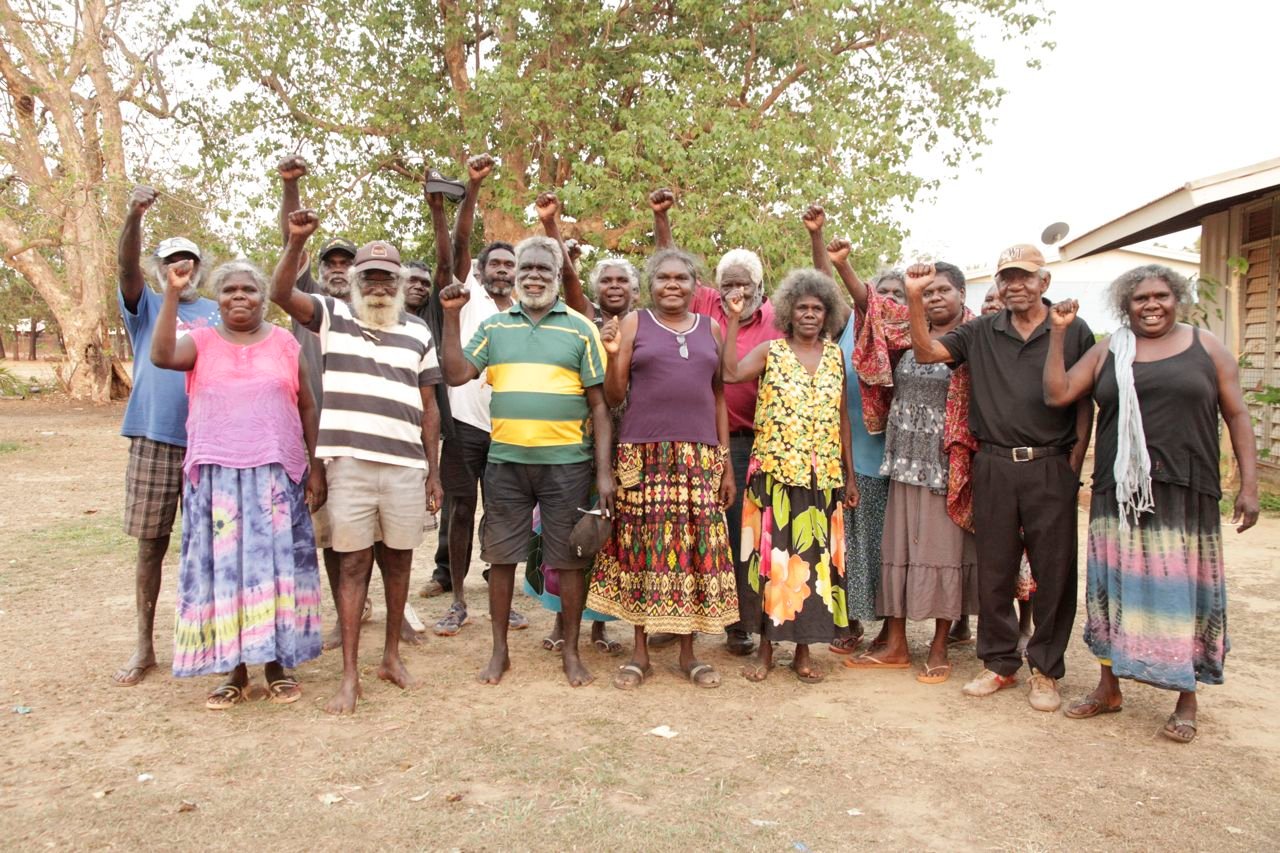
However, the settlers had so little knowledge of or regard for the culture of their newly-“discovered” land that they declared it “Terra Nullius” (“Nobody’s Land” in Latin) – a theory that held sway until late in the 20th century, when legal proceedings to establish Aboriginal ownership of the land finally overturned the doctrine.
Australian Aboriginal culture includes a number of practices and ceremonies centred on a belief in the “Dreamtime”, or “Dreaming” and other mythology. Reverence and respect for the land and oral traditions are key. The Dreamtime is used to represent Aboriginal concepts a time when the land was inhabited by ancestral figures, often of heroic proportions or with supernatural abilities. These figures were often distinct from gods as they did not control the material world and were not worshipped, but only revered. The concept of the Dreamtime has subsequently become widely adopted beyond its original Australian context and is now part of global popular culture. But the word is not without its controversy, and anthropologists have variously translated words normally understood to mean Dreaming or Dreamtime in a variety of other ways, including "Everywhen", "world-dawn", "ancestral past", "ancestral present", "ancestral now", "unfixed in time", "abiding events" or "abiding law".
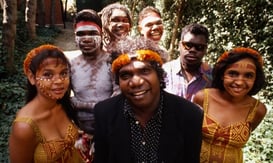
As for the Yolŋu in particular, they are known to have engaged in extensive trade with Macassan fishermen (Indonesia) at least two centuries before contact with Europeans and had well-established trade routes within Australia
Today, Yolŋu Matha (Yolŋu = people, Matha = tongue, language, where the “ŋ” in Yolŋu is pronounced as the “ng” in “singing”) is spoken by anywhere between 4,600 and 8000 people according to different sources. In fact Yolŋu Matha consists of about six languages, some mutually intelligible, divided into about thirty clan varieties and perhaps twelve different dialects, each with its own Yolŋu name.
There is also a Yolŋu Sign Language (YSL), though it is not a signed version of any spoken Yolŋu language. It is used not only for communicating to the deaf, but also when communicating at a distance, when hunting, or when oral speech is forbidden, such as during mourning, between certain family relations and in ceremonies that require silence. It was acquired from birth by the hearing population. YSL is also now considered an endangered language.
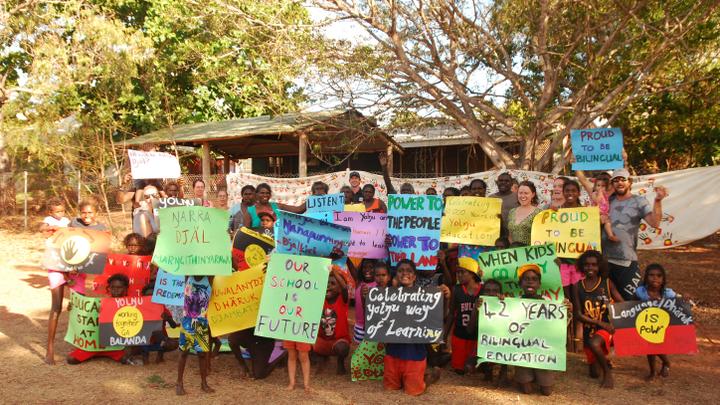
Yolŋu languages are written using special characters. Keyboards and fonts have been designed for use on different platforms and devices. Charles Darwin University offers Yolŋu Studies courses for undergraduate and postgraduate level, which teach the languages and culture. Several dictionaries and grammars have been produced – a promising sign.
The cultural scene also gives grounds for optimism in the 21st century. In the cinema world, the films Ten Canoes (2006) and Charlie's Country (2013), both directed by Rolf de Heer and featuring actor David Gulpilil, feature dialogue in Yolŋu Matha. Ten Canoes was the first feature film to be shot entirely in Australian indigenous languages.
Meanwhile, artists and performers such as rock group Yothu Yindi and rapper dancer Baker Boy, who features in the video you saw at the start, and who was awarded Young Australian of the Year in 2019, have been promoting the language and culture globally. Maybe this article will have sparked your interest too and encouraged you to do a little more research?
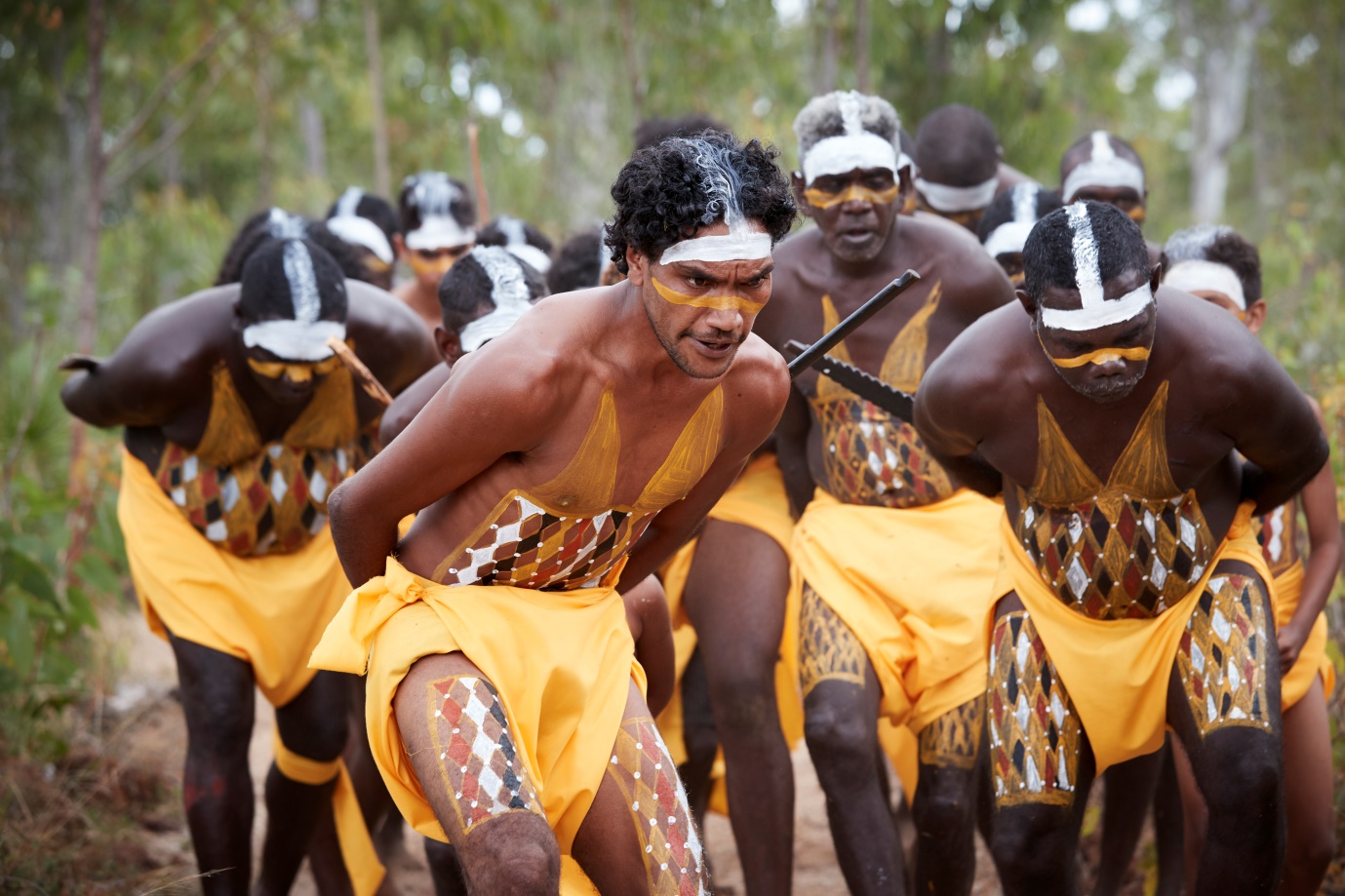
See all entries from this Language Watch series